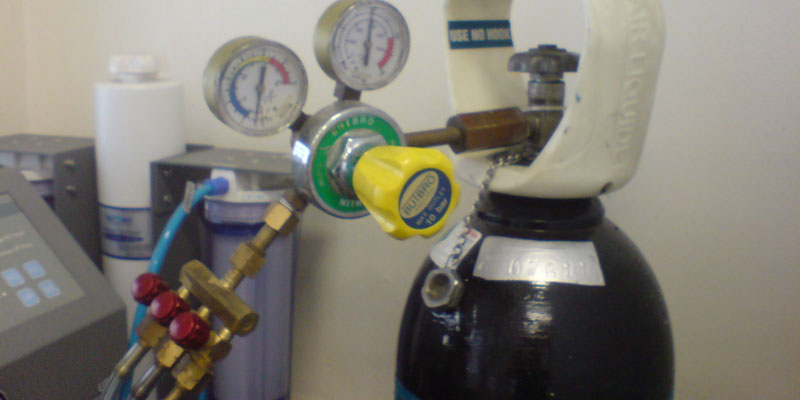A lawsuit challenging Alabama’s lethal injection process took an unexpected turn Tuesday after eight inmate plaintiffs asked to be put to death by the state’s new execution method: inhaling nitrogen gas.
The Alabama attorney general’s office and lawyers for inmates submitted a joint motion Tuesday to dismiss the litigation.Lawyers said the inmates’ claims challenging the state’s lethal injection process as inhumane are now moot, “because their executions will be carried out at the appropriate time by nitrogen hypoxia.”
Breathing the inert gas causes oxygen depletion in the blood stream.
Alabama had previously carried out executions by lethal injection and electrocution.
Alabama in March added nitrogen to the list, becoming the third state to authorize executions by nitrogen.
No state has yet used the method.
According to the motion, the eight inmate plaintiffs in the lawsuit had a June 30 deadline to request execution by nitrogen and all did so.
“The plaintiffs in this case, and anyone else who elected the new method, cannot now be executed by lethal injection,” said John Palombi, an attorney with the Federal Defenders Program, who is representing inmates in the lawsuit.
It’s not clear how many inmates had the choice or how many altogether have requested nitrogen.
A spokesman for Alabama Attorney General Steve Marshall said his office did not have additional comment.
A spokesman for the Department of Corrections could not immediately be reached for comment late Tuesday.
Robert Dunham, executive director of the Death Penalty Information Center, said it could be some time before the inmates see a death chamber with nitrogen.
“At least for the prisoners who elected nitrogen gas over lethal injection, there will be no executions until Alabama has an approved nitrogen-gas protocol in place.
It will take time for that to happen and, because the gas protocol will also be untried, it will face its own set of legal challenges,” Dunham wrote in an email.
Dunham said the eight inmates also may “prefer the unknown risks of nitrogen hypoxia to the known risks” of lethal injection drugs while Alabama avoids having to litigate the lethal-injection issue by voluntarily dismissing the case.
Palombi said the eight inmates did not waive their rights to eventually challenge the humaneness of execution by nitrogen and urged the state to make the protocol public when it is developed.
“While the best way to reduce the risks of botched executions would be to abolish the death penalty, if the death penalty does exist, it must be carried out in a constitutional manner with the respect and dignity that is required of such a solemn event,” Palombi said.
(Associated Press, copyright 2018)
Sign-up now for our daily newsletter and never miss another article from Yellowhammer News.












